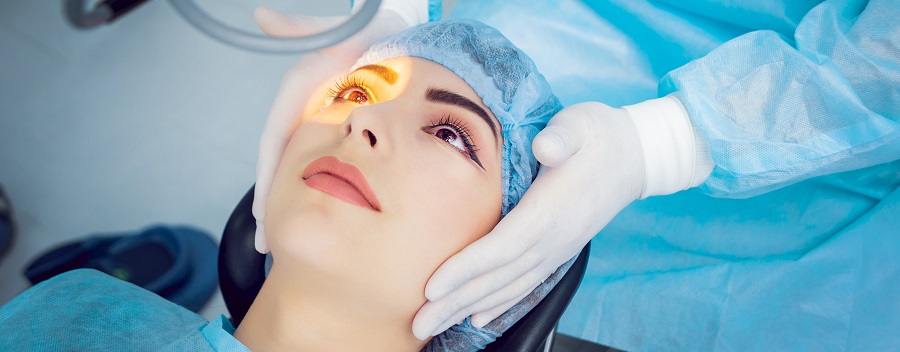
Due to a cataract, the normally clear lens of the eye becomes cloudy. Cataract patients may relate their vision through clouded lenses to seeing through a frosty or fogged window. Cataracts can make it more difficult to read, drive (especially at night), and observe the facial expression of a friend. The majority of cataracts develop slowly and do not initially affect vision. However, cataracts will ultimately impair your vision as time passes.
Initially, cataracts can be treated with enhanced illumination and eyewear. However, if your eyesight impairment hinders your typical activities, cataract surgery may be required. The good news is that cataract surgery is now generally risk-free and effective.
Cataract symptoms and signs include:
Depending on the severity of your cataract symptoms, you may only need a new prescription for glasses or contacts. However, cataracts tend to worsen over time. Eventually, your doctor will likely recommend surgical removal of the cataract.
The most popular cataract treatment is phacoemulsification. To access the clouded lens, your ophthalmologist makes a small incision in the eye. Your ophthalmologist uses a laser or high-frequency sound waves to detach the lens (ultrasound). The doctor implants a new artificial intra-ocular lens into your eye after removing lens fragments.
In hard cataract the phacoemusification technique is not suitable, then your doctor may advise Small incision cataract surgery.
Over 60-year-olds are more likely to get cataracts than younger persons. They are seldom ever observed in infants and adolescents.
2. According to my doctor, I need to wait a time before having my cataract removed. Why?When a cataract seriously impairs your eyesight and daily activities, cataract surgery is typically performed. To keep track of its development, you must frequently visit an eye specialist.
3. After having cataract surgery, will I need to wear glasses?The kind of intraocular lenses (IOLs) utilised for you would determine this. The use of glasses is significantly reduced by modern intraocular lenses, such as multifocal or adapting IOLs, and in many situations, even reading glasses are not necessary. Nowadays, few people need to wear heavy eyeglasses.
4. What other precautions, other the drugs, should I be taking?Make your follow-up appointment as agreed. Apply eye drops as directed and keep following the general recommendations.
The focus for the operated eye is changed after cataract surgery. Depending on the IOL, your old glasses cannot be used and you will need new ones. Refrain from rubbing your eyes and make sure they are shielded. Any unexpected or unusual adverse effects, such as bleeding, nausea, or prolonged discomfort that doesn't get better, must be reported right away.
© Copyright 2023 Santhosh Eye Hospital.